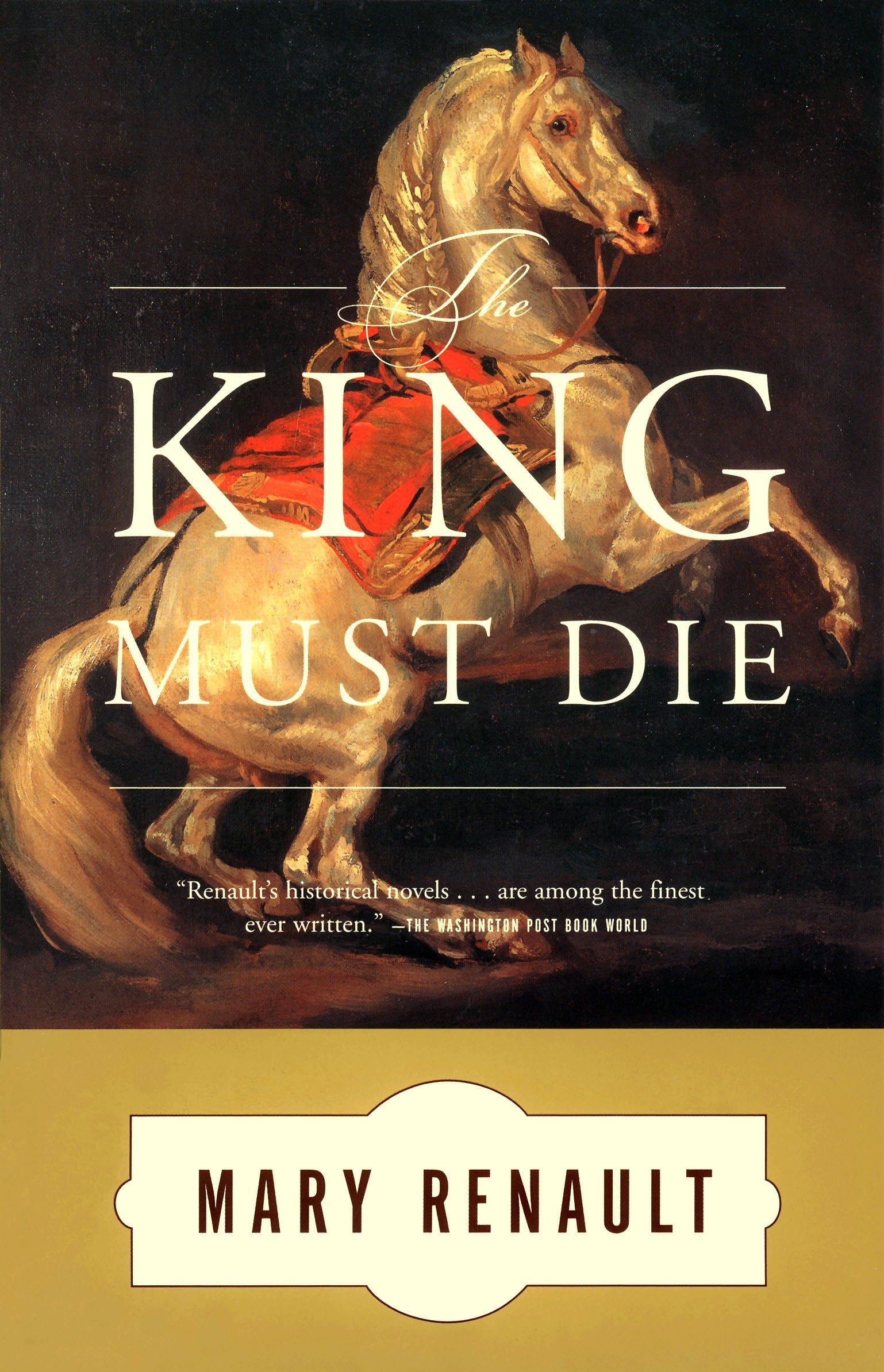Customer Services
Copyright © 2025 Desertcart Holdings Limited
Desert Online General Trading LLC
Dubai, United Arab Emirates


The King Must Die: A Novel

N**N
A wonderful glimpse into ancient times
I am forever grateful to the friend who turned me onto Mary Renault's writing. I cut my teeth on The Persian Boy, and have always intended to dip into her other books. Renault also has a connection to my home town – she bought a home in Camps Bay, a beautiful seaside suburb. I get the idea that after World War II she was so over everything.But getting back to The King Must Die (Theseus #1), this is Renault's telling of Theseus's story. Those of us who are au fait with their Greek mythology will know he's the chap who whacked the dreaded minotaur in its labyrinth. Renault effortlessly takes the story out of myth and breathes life into it, spinning a plausible reconstruction of the myth.Theseus is no Hercules. Short of stature, and the son of a king and a priestess, he has a sense of entitlement and quick wit that more than make up for his shortcomings. Which gets him into sufficient trouble as much as it sees him through sticky situations. Crowned as Eleusian king when he participates in their annual king-sacrificing rite, he knows he has a year to live before he too must make way for the next king.And even in Eleusis he carves a name for himself, so that he eventually reveals himself to his father Aigeus in Athens, it is on equal footing. Yet this touching reunion is short lived, because Theseus and a number of fellow Athenian youths end up as the tribute for the Cretan bull-dancing. There's even a whiff of magic involved, as Theseus is one of those rare individuals who is sensitive to incipient earthquakes, and perceives himself a scion of the god Poseidon.Full of courtly intrigue, this story explores the ancient times in a way that is far more vivid than any history book. While the writing is far more formal than what I'm used to, Renault captivates with her achingly beautiful descriptions of the Greek Isles, its people, the architecture, and the culture. Theseus is a catalyst for change in the societies in which he acts – gleefully overturning old customs that have outlived their usefulness and heedless of the damage he causes. So perhaps there is a bit of a trickster in him too. He's not a particularly nice character – some of his actions had me raising my brow – but he's very much a compelling narrator.If you're looking for historical fiction that will paint ancient Greek myths into life, then The King Must Die will offer a vivid canvas.
D**D
The Bull Leapers' Revolt
"The King Must Die" by Mary Renault is an excellent read. At times, this historical novel of the ancient legendary (perhaps mythical, perhaps not) Greek hero Theseus becomes a magical page-turner, filled with excitement and adventure.The reader learns the customs, mores, fears and joys of the people of various Greek cities in which Theseus lived during the few years of his young life covered in this novel.One cannot help but be struck by how the unknown ruled the lives of ancient peoples, how they transformed the unknown into myths and superstitions to abate their fears, and how our own rituals and ridiculous Western religious rites eventually emerged from such human history - myth or not. Natural phenomena were seen as caused by angry (or happy) gods and goddesses, and how the barbaric ritual of the animal (and human) sacrifice gave strange power to the leaders of the ignorant. And yet, in Theseus, we see a young man who literally takes responsibility for his own life and fate, charging off into unknown situations with bravery and courage. The ever-active forces and counter-forces between mythology to explain the unknown and reality in dealing with life in the moment are what gives Renault's tale life and substance - and relevance today.Even then-practiced and rather well-accepted homosexuality is treated with sensitivity by Renault (as she does in all of her works of ancient Greeks and modern Brits - see, "The Last of the Wine," and "The Charioteer" for examples, as well as her trilogy of Alexander the Great). "The King Must Die" is irredeemably heterosexual, make no mistake, with Theseus' development as a lover of women one of the central features of the story. Remember these works were all written by this Oxford-educated woman in the 1950s and 1960s.It is gorgeously written, flows remarkably well from chapter to chapter, and makes this reader appreciate even more the role that the ancients played in the development of a civilized world. She certainly brings Theseus to life with exquisite detail and superior attention to even the smallest aspect of his surroundings, feelings and his exploits. He becomes a human before your very eyes. Some of her best passages describe the psychological states of the main characters, their coping mechanisms and the ways that they conquered their at-times overwhelming fears. And, there was always time for love.I rate it a 4.4 or 4.5 on Amazon's 5 point scale, but round the rating down to a 4.0, despite enjoying it immensely. It's an interesting and fun read, educational and stimulating, full of color, liveliness and realistic people.
Trustpilot
2 weeks ago
3 weeks ago